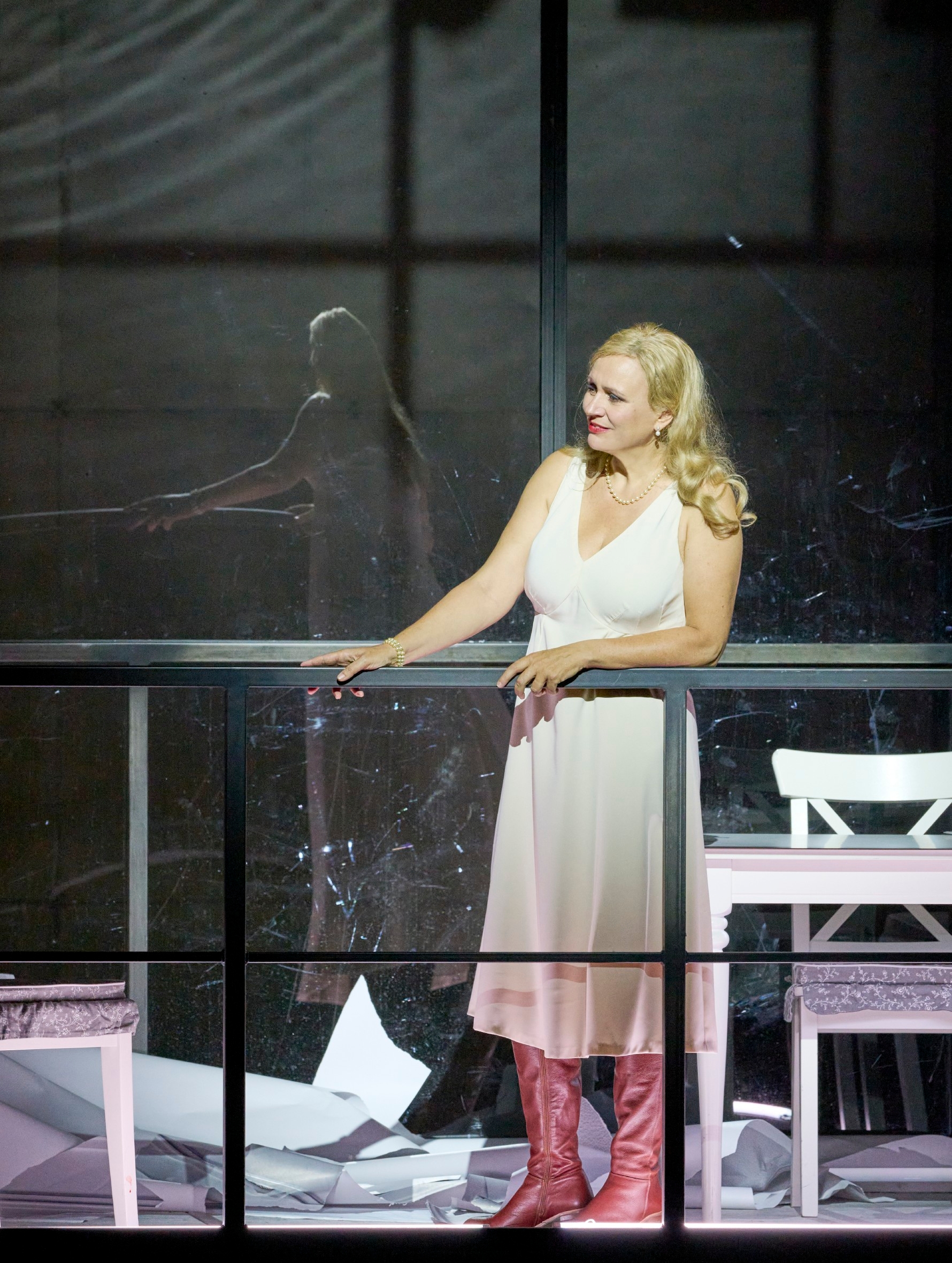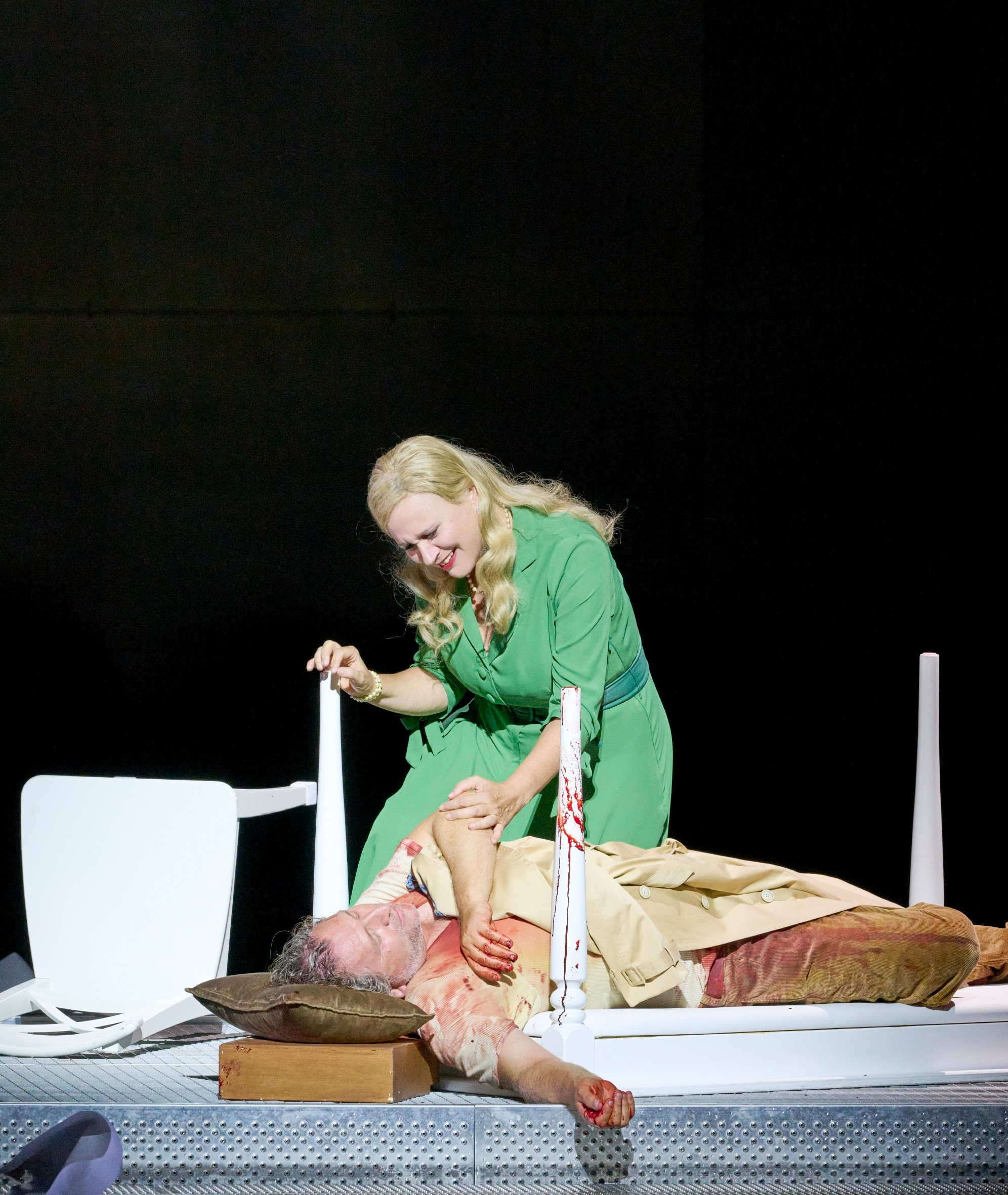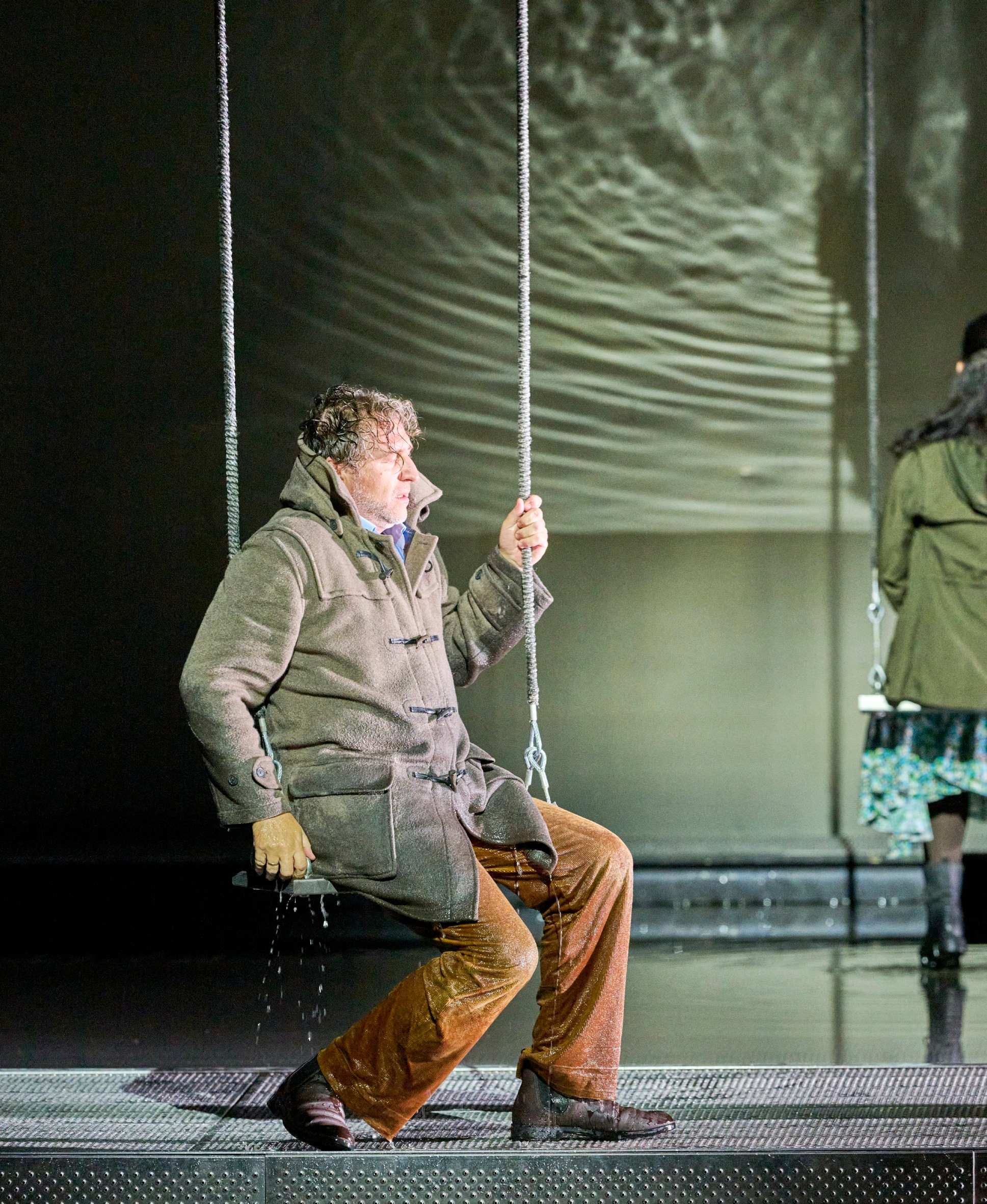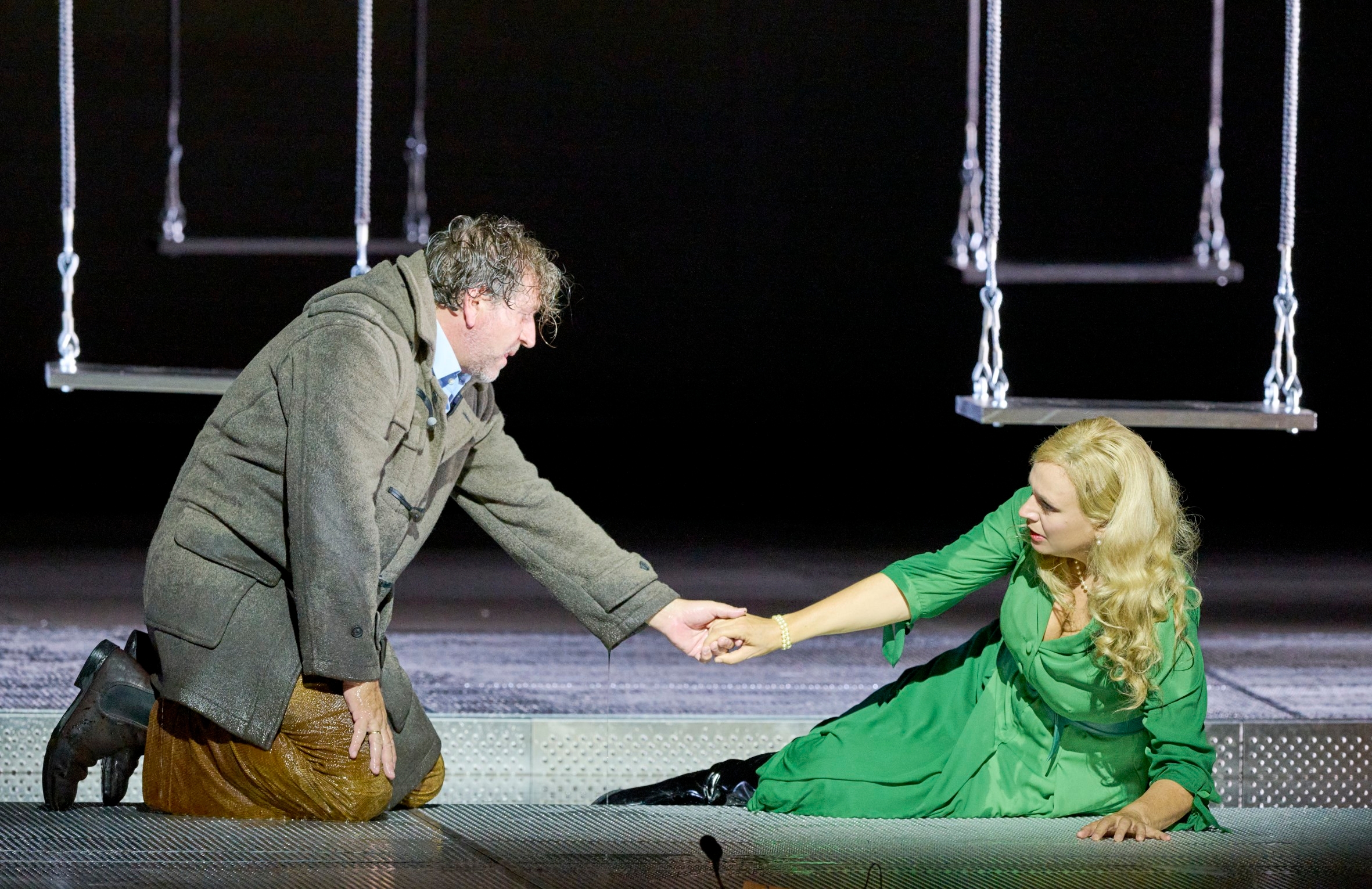
Short Summary
Isolde loves Tristan, and Tristan loves Isolde. A love with no alternative, no chance, because Isolde is to marry King Marke in order to seal the peace between Ireland and Kareol.
Tristan accompanies her, who is wavering between contempt and despair, to Kareol. "Chosen to me, lost to me", sings Isolde about Tristan, and continues: "Death-consecrated head! Doomed heart!" Only in death does their love seem possible. Isolde's confidante Brangäne, however, administers a love potion instead of the requested death potion, and the fate of the two "night consecrated ones" takes its course.
Tristan und
Isolde
Storyline
Tristan, the adopted son of King Mark of England, is at the helm of a ship. Tristan brings Isolde, the king's daughter of the subjugated Irish, to England.
There he will marry her off to the widowed Marke in order to strengthen the alliance between the two peoples - and his own position of power. On board, he keeps his distance from Isolde. Instead of treating her with the respect she deserves, he mocks her in a mocking song that the entire crew joins in with.

Isolde reveals the story to her confidante Brangäne: During the war, Tristan had killed Isolde's fiancé Morold. However, he had suffered a poisoned wound from the duel. The ailing Tristan set himself adrift in a boat off the coast of Ireland to be cared for by Isolde as the minstrel "Tantris", as he could only hope to recover from her healing skills. Isolde recognized him as the murderer of her fiancé and yet was unable to take revenge when the sick man looked her in the eye.
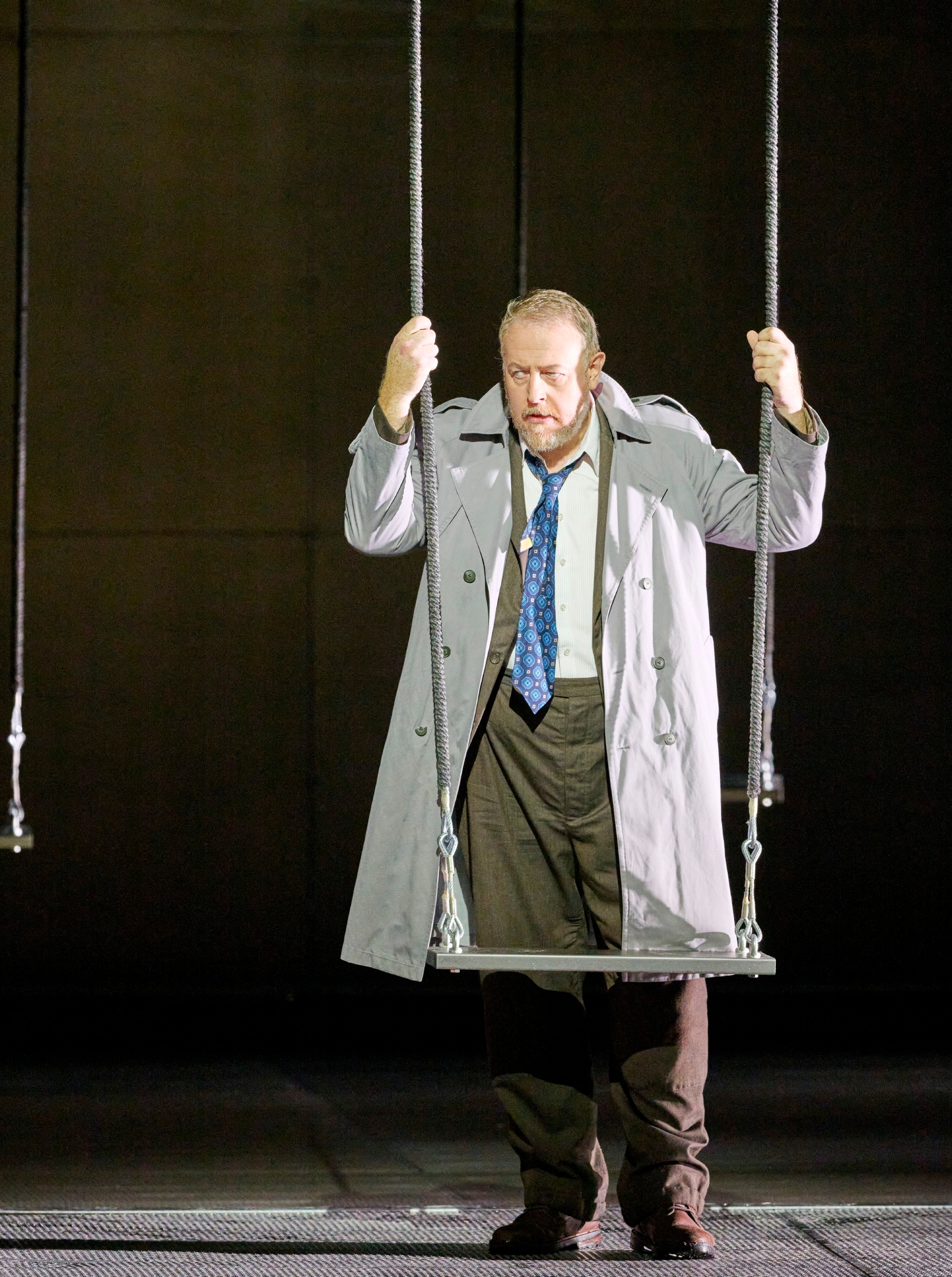
the cured "Tantris" returned under his true name as King Mark's suitor. The beaten Irish had no choice but to accept this proposal. When Brangäne points out the magic potions she had smuggled on board, which could perhaps turn everything around, the deeply humiliated Isolde decides to poison Tristan and herself. But instead of the poison, Brangäne gives the two mortal enemies a love potion that condemns them to the delights and torments of unquenchable longing.
When rehearsals for the new Vienna production of Tristan und Isolde begin, director Calixto Bieito does not want to talk about his concept for long. The stage world created by Rebecca Ringst and the costume designs by Ingo Krüger are known in outline from the earlier presentation; what he "otherwise said", says the director, is still valid. He means his hints from the first presentation, hints about how Tristan and Isolde have a shared history, a secret, how they tried unsuccessfully to free themselves from each other, how they meet again. And that it is an incredible play about love.
It is the duet in the second act. The challenge that Richard Wagner's Tristan and Isolde poses to any scenic approach culminates here in forty minutes in which love is exaggerated to metaphysics, in which two figures do not merge in song and music, but synthesize in song into something completely different: the two night figures create their own reality from love as Wagner conceives it.
With this opera, Richard Wagner created the key work of musical Romanticism, as evoked by E. T. A. Hoffmann: "Glowing rays shoot through this realm of deep night, and we become aware of giant shadows that rise and fall, enclose us tighter and tighter and destroy us, but not the pain of infinite longing". At the same time, Wagner pushed open the door to musical modernism, because through the independence of chromaticism and the emancipation of dissonance, the harmonic tension - symbolic of erotic tension - is denied resolution. This is only achieved in the Liebestod, in which the dying Isolde hallucinates the resurrection of the dead Tristan.
Calixto Bieito, one of the most influential music theater directors of recent decades, is tackling this work for the first time. His works always focus on the creaturely, deadly corporeality of his actors. It should be exciting to see them in battle with Wagner's Tristan theorem.

